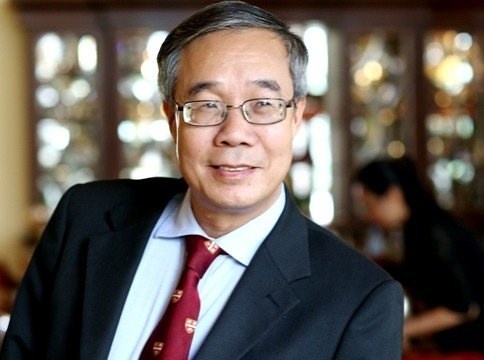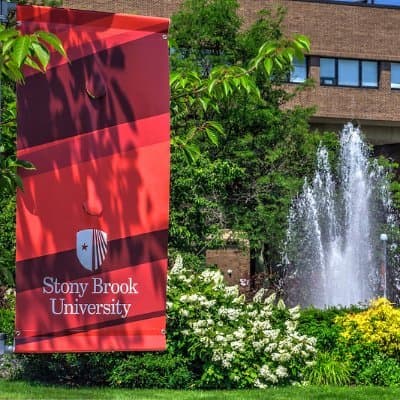“Don’t Let Professor Trương Nguyện Thành Be a Test Case for Overseas Talent”

Mr. Tran Duc Canh
Mr. Tran Duc Canh, a member of the National Education Council and Human Resource Development for the 2016 – 2021 term, appointed by the Prime Minister, believes that some intellectuals abroad view the case of Professor Truong Nguyen Thanh as a “test case” for the policy of attracting high-quality human resources back to Vietnam.
Interviewer: Mr. Canh, the public is very interested in Professor Truong Nguyen Thanh returning to the U.S. due to not meeting the standards to become a university president in Vietnam. From a personal perspective, how do you analyze this situation?
– Mr. Tran Duc Canh: The case of Mr. Truong Nguyen Thanh should be evaluated in terms of university autonomy, specifically regarding the current level of autonomy granted to Hoa Sen University. Mr. Thanh was elected as president by the Board of Trustees of Hoa Sen University with 16 out of 18 votes; however, he was not approved by the Ministry of Education and Training due to being disqualified by the “rigid” criteria under the law.
Among other criteria, the Higher Education Law stipulates that the president must have managed a department or faculty at a higher education institution for at least 5 years, which is too specific and rigid. According to this criterion, the president must have risen through the ranks from within, making it very difficult for anyone from outside to meet this requirement.
In developed countries, they do not follow this model but define the role of the president as managing the university. Each university has different development conditions, and depending on the stage, it may require a leader who is skilled in diplomacy, politics, fundraising, management, law, etc. Usually, these individuals do not come from within the university system but from outside, bringing necessary experience. Not only in education, but in the healthcare sector as well, their hospital directors are often not doctors but masters, lawyers, or those specializing in hospital management.
In the case of Mr. Truong Nguyen Thanh, it was clearly stated that he did not meet the requirements due to not having 5 years of experience managing a department/faculty, but I think that if Mr. Thanh was chosen as president by the Board of Trustees of Hoa Sen University, there must have been legitimate reasons, and this should be respected. Currently, some intellectuals abroad see Professor Thanh’s case as a test case. If Mr. Thanh’s case fails, it will be difficult to attract talent from abroad, as many already have doubts and concerns about the working mechanisms and environment in Vietnam.
Ethical standards, personal qualities, management experience, and qualifications are mandatory, but the 5-year requirement for managing a department/faculty needs to be reconsidered because it is too rigid. I think that some criteria do not need to be too specific as they can become barriers when applied.
The Higher Education Law is currently being amended, so what changes are needed to further promote university autonomy in Vietnam?
– The recent draft amendment to the Higher Education Law emphasized university autonomy, but some aspects still need clarification regarding powers, responsibilities, and the interrelationship of various components. An example is the role of the university with the Ministry of Education and Training. Until now, the Ministry of Education and Training has played the role of the governing body; if autonomy is implemented, how will the supervisory role of the Ministry change into a state management role?
Currently, universities have partial autonomy, but what happens if they are fully autonomous? The responsibilities of the University Council and the president also need to be clarified. Specifically, the responsibility of the University Council in public universities and the Board of Trustees in private universities. These two bodies must clearly define operational responsibilities, decision-making powers, and accountability.
You have lived and worked in the U.S. for more than four decades. Can you share the standards for university presidents in the U.S.?
– In the U.S., there are no government regulations on the standards for university presidents like in Vietnam. The public school system here is managed at the state level. Therefore, state governors usually appoint a State Board of Education to manage the schools. This Board sets general policies for all schools or specific types of public schools within the state. In addition, each school also has its own University Council, so the president is appointed by the Board of Trustees. The school decides on its president based on its needs. It is common for a university to appoint someone who has never taught or served as a department head. Private schools make their own decisions, and the government does not interfere at all.
In your opinion, how should the standards for university presidents in Vietnam be regulated?
– In Vietnam, there are two systems, public and private schools, so the standards for university presidents may differ. However, I think rigid criteria do not need to be clearly defined in the law because when the responsibility is given to the University Council to choose the president, they must prioritize the interests of the school to select a suitable candidate.
If the Government sets specific standards and assigns them to the University Council, this body will find it very difficult to implement and may be ineffective. In private schools, the Board of Trustees will decide because the motivation to make the school better is very clear. Private schools may hire presidents, so the standards should be relatively set because the market will determine the president’s effectiveness; if not effective, the school may not survive.
Currently, university presidents in Vietnam are usually approved by the Ministry of Education and Training and local authorities, while the University Council or Board of Trustees only makes recommendations. When these two bodies approve, the University Council or Board of Trustees no longer has the power to decide on the school’s matters. What do you think about this?
– The decision-making power should be given to the University Council, and there should be no interference in the school’s affairs. The principle is that power goes hand in hand with responsibility; no one should be given responsibility while being stripped of part of their power. The same applies to private schools; it is not necessary to submit to the government, and to some extent, it should only report to these agencies.
Thank you for your insights!
Source: http://vietnamnet.vn/vn/giao-duc/nguoi-thay/dung-de-giao-su-truong-nguyen-thanh-lam-phep-thu-cho-nhan-tai-o-nuoc-ngoai-449778.html

